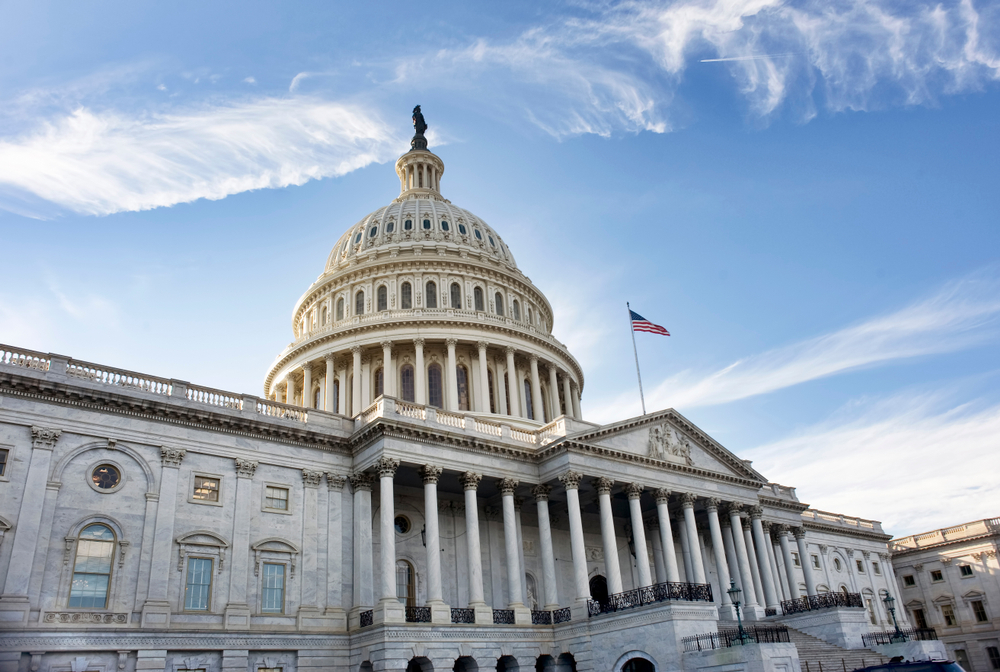The House just passed the bill. While it addresses infrastructure as a whole, several sections will have big impacts on American farming.

Today, after months of negotiations, Congress passed the Build Back Better Act in a 220 to 213 vote. Falling mainly along party lines, Democrats have been trying to get this ambitious piece of legislation, proposed by President Biden ahead of his inauguration, passed for months. Coming in at $1.75 trillion, the act will impact nearly every corner of infrastructure in the country, from roads and bridges, to high-speed internet, to funding for the Forest Service. With the bill passed through the House, it now goes to the Senate, where it faces a rough road ahead.
Among the many provisions included in the bill, several will have direct impacts on farming and agriculture. Here are the key points you should know.
Who’s Paying For This?
The White House maintains that funding for the bill’s initiatives will come from tax rate increases, but only for those at the top tiers. This includes large corporations that bring in more than $1 billion per year and individuals who make more than $10 million per year. Not everyone is on board with this funding model. The American Farm Bureau wrote a letter to Congress saying that the tax increases would still negatively impact small businesses in rural areas, trickling down to consumers via price hikes.
Secretary of Agriculture Tom Vilsack disputed that claim in a press conference this afternoon. “I doubt very sincerely if you assess a five percent surcharge on the income tax bill of someone who is making $10 million a year that they are going to lose their farm or their ranch. I just don’t think that’s going to happen,” he said.
The Congressional Budget Office estimated the tax hikes would still leave the country short of the full $1.75 trillion needed and could increase the national deficit over the next decade. However, the White House argues those numbers are underestimated.
Debt Forgiveness
Diverting $6 billion from the American Rescue Plan, this bill will provide credit and debt relief to struggling farmers. It targets farmers who are undergoing bankruptcy or foreclosure, who were delinquent on debt, or have restructured eligible farm debt. Vilsack said it will be of particular help to people who haven’t benefited from traditional market programs.
New Regulations on Methane Emissions
The bill does include a methane fee to be imposed on natural gas and petroleum emitters. However, the tax is not applicable in the agricultural sector, so no, you will not have to pay a tax on your head of cattle. However, Vilsack said the bill has many climate initiatives, and the USDA may be able to work with ranchers to provide help and assistance. That might look like “gauging certain feed additives or certain feed sources that reduce methane production” or perhaps finding “a series of dairy producers who combine efforts to convert manure from the dairy operation into a variety of different products, which in essence reduces the chance of that manure finding its way into a landfill and creating additional methane.” Vilsack was open to possibilities, but stressed that the bill focused on climate-smart agriculture.
Protections for Farm Workers
The bill allocates $100 million for immigration reform. While that’s an issue that impacts many sectors across the country, it could have a huge impact on agriculture. Many American farms rely on undocumented or immigrant labor. The inclusion of this provision has been championed by groups such as the United Farm Workers. Secretary Vilsack stressed that this aspect of the bill wasn’t just crucial for the economy, but a moral step that lawmakers need to take.
“It’s just not right. At some point in time we have to have political leaders with sufficient courage to stare down those people who want to divide us and understand the importance of fixing this imigration system, and fixing it in a way that allows these workers to come out of the shadows,” he said.
According to Vilsack, this portion of the bill was supported by many farmers and producers who rely on this labor force, and who are “desperately interested in seeing Congress do its job.”